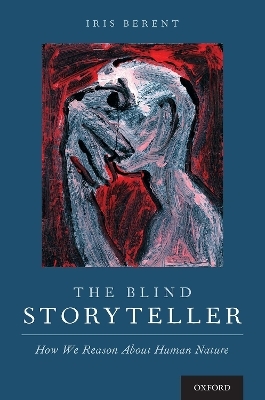
The Blind Storyteller
Oxford University Press Inc (Verlag)
978-0-19-006192-0 (ISBN)
Going all the way back to ancient Greece, human nature and the mind-body problem have been the topics of fierce scholarly debates. But laypeople also have strong opinions about such matters. Most people believe, for example, that newborn babies don't know the difference between right and wrong--such knowledge, they insist, can only be learned. For emotions, they presume the opposite--that our capacity to feel fear, for example, is both inborn and embodied.
These beliefs are stories we tell ourselves about what we know and who we are. They reflect and influence our understanding of ourselves and others and they guide every aspect of our lives. In The Blind Storyteller, the cognitive psychologist Iris Berent exposes a chasm between our intuitive understanding of human nature and the conclusions emerging from science. Her conclusions show that many of our stories are misguided. Just like Homer, we, the storyteller, are blind.
How could we get it so wrong? In a twist that could have come out of a Greek tragedy, Berent proposes that our errors are our fate. These mistakes emanate from the very principles that make our minds tick: Our blindness to human nature is rooted in human nature itself.
An intellectual journey that draws on philosophy, anthropology, linguistics, cognitive science, and Berent's own cutting-edge research, The Blind Storyteller grapples with a host of provocative questions, from why we are so afraid of zombies, to whether dyslexia is "just in our heads," from what happens to us when we die, to why we are so infatuated with our brains. The end result is a startling new perspective on the age-old nature/nurture debate--and on what it means to be human.
Iris Berent is a Professor of Psychology at Northeastern University, Boston, and the Director of the Language and Mind Lab. Berent's research has examined how the mind works and how we think it does. She is the author of dozens of groundbreaking scientific publications and the recipient of numerous research grants. Her previous book, The Phonological Mind (Cambridge, 2013), was hailed by Steven Pinker as a "brilliant and fascinating analysis of how we produce and interpret sound."
Preface
Chapter 1: Know Thyself
I. What We Know
a. Who's afraid of innate ideas?
Chapter 2: Innateness Stories
b. The rich mental lives of infants
Chapter 3: Object and Number
Chapter 4: The Social World
Chapter 5: The Dawn of Language
c. Our blindness to innate ideas
Chapter 6: Nativist intuitions
Chapter 7: The tempest is Brewing
Chapter 8: A Perfect Storm
II. Who We Think We Are
a. Overview of Part II
b. Thoughts and feelings
Chapter 9: It's in My Bones
Chapter 10: My Big heart
c. In Health and Disease
Chapter 11: Insane about the Brain
Chapter 12: Mental Disorders
Chapter 13: Decoding Dyslexia
d. While We're Here and Once We're No More
Chapter 14: After Life
Chapter 15: Land of the Free
III. Coda
Chapter 16: Why it All Matters
| Erscheinungsdatum | 07.05.2020 |
|---|---|
| Verlagsort | New York |
| Sprache | englisch |
| Maße | 236 x 163 mm |
| Gewicht | 567 g |
| Themenwelt | Geisteswissenschaften ► Philosophie |
| Geisteswissenschaften ► Psychologie ► Allgemeine Psychologie | |
| Geisteswissenschaften ► Psychologie ► Verhaltenstherapie | |
| Sozialwissenschaften ► Ethnologie | |
| Sozialwissenschaften ► Soziologie | |
| ISBN-10 | 0-19-006192-8 / 0190061928 |
| ISBN-13 | 978-0-19-006192-0 / 9780190061920 |
| Zustand | Neuware |
| Informationen gemäß Produktsicherheitsverordnung (GPSR) | |
| Haben Sie eine Frage zum Produkt? |
aus dem Bereich


